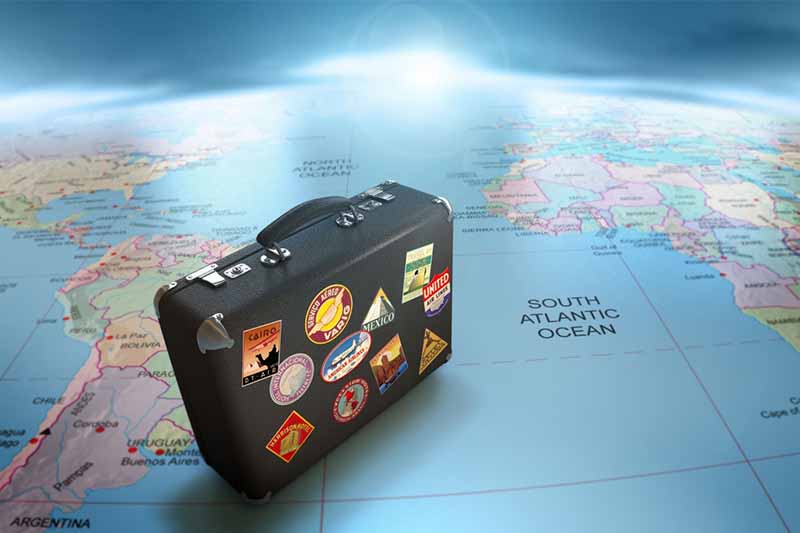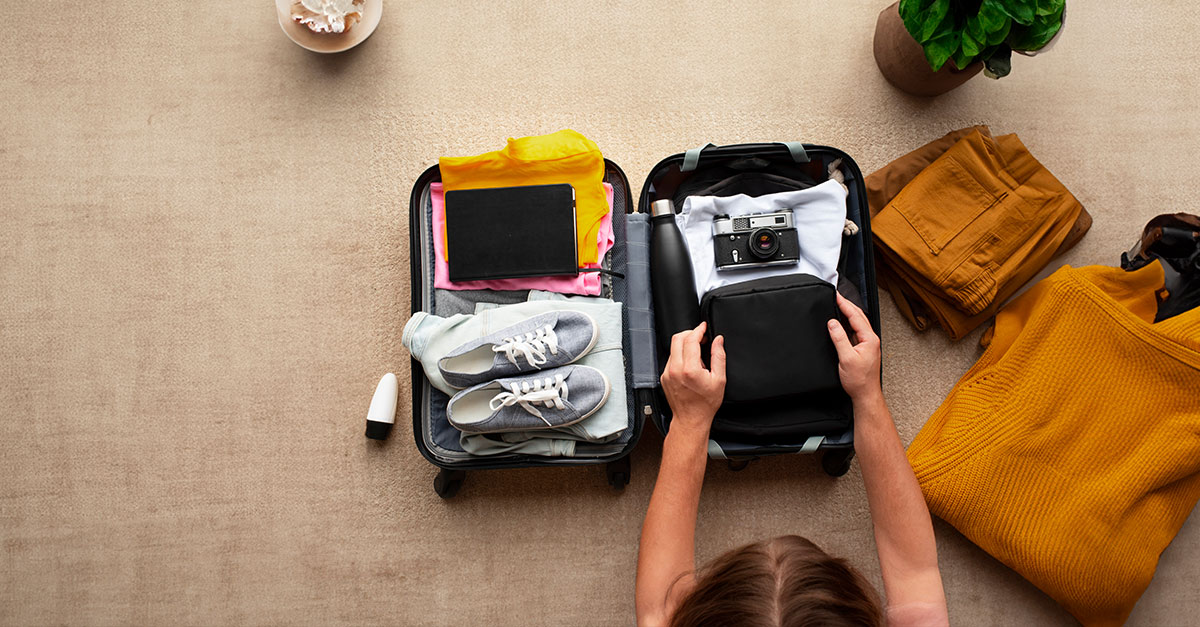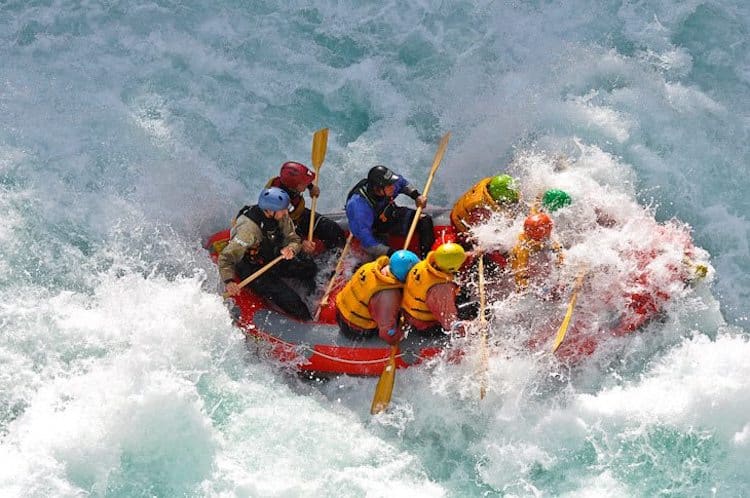Traveling abroad is an exciting opportunity to explore new cultures, try different cuisines, and create unforgettable memories. However, it also comes with its share of risks, from unfamiliar environments to potential health concerns. While it’s impossible to eliminate all risks, taking proactive steps can significantly improve your safety and peace of mind while traveling. In this article, we’ll explore the best ways to stay safe while traveling abroad, ensuring that you can enjoy your trip to the fullest.
Why Is Safety Important When Traveling Abroad?
Safety is a critical consideration when traveling abroad for several reasons:
- Unfamiliarity with the Environment: Traveling to a new country means you may not be familiar with local customs, laws, or even the geography, which could increase the risk of accidents or misunderstandings.
- Health Risks: Different countries may present unique health risks due to variations in climate, sanitation, or disease exposure. Travelers may also face challenges related to medical care and insurance coverage.
- Personal Safety: The risk of theft, fraud, or even violent crime can increase when you’re in an unfamiliar place, particularly if you’re not aware of the local safety conditions or how to avoid dangerous situations.
By taking some basic safety precautions and being aware of your surroundings, you can reduce these risks and have a more enjoyable and secure travel experience.
What Are the Best Ways to Stay Safe While Traveling Abroad?
1. Research Your Destination
Before you even board your plane, it’s crucial to do some research on the country or region you’ll be visiting. This preparation can help you understand local customs, laws, and safety concerns.
- Read Up on Local Safety Tips: Websites like the U.S. Department of State’s travel advisory page or similar resources from your home country can provide updated safety and security information. These sources often highlight areas with high crime rates or political instability.
- Learn About Local Laws: Some countries have strict laws or cultural norms that might be different from what you’re used to. For example, in some countries, laws about alcohol consumption or dress codes are much stricter, and violations can lead to fines or arrest.
- Understand Health Precautions: Research any vaccinations or health precautions you may need before your trip. Certain areas may have health risks such as malaria or Zika, and you may need specific medications or preventive measures.
- Stay Informed About Local Scams: In some tourist destinations, common scams target unsuspecting travelers. Familiarize yourself with typical scams in the area, such as overcharging, fake guides, or pickpocketing.
2. Register with Your Embassy or Consulate
Before traveling, consider registering with your country’s embassy or consulate. This service is often available through online platforms, where you can submit your itinerary and contact details.
- Emergency Assistance: In case of an emergency, your embassy can help with things like replacing a lost passport, getting emergency medical assistance, or facilitating evacuations.
- Stay Informed: Registration can also ensure that you receive safety alerts related to your destination, such as natural disasters, civil unrest, or other security concerns.
3. Keep Copies of Important Documents
Losing important documents, like your passport, can be a major inconvenience while abroad. To avoid being caught without identification, follow these steps:
- Make Copies: Before you leave, make photocopies or take photos of important documents like your passport, visas, credit cards, travel insurance, and emergency contacts. Store them separately from the originals (e.g., in your email or a secure cloud storage system).
- Leave Copies with Family: Share copies of your important documents with a trusted friend or family member back home. This person can help you navigate any issues that arise during your trip.
4. Use Travel Insurance
Travel insurance can be a lifesaver if you encounter unexpected problems while abroad. There are several types of travel insurance to consider:
- Medical Insurance: Health insurance abroad is crucial since your regular health insurance might not cover international emergencies. Look for travel medical insurance that includes emergency evacuation, hospital stays, and repatriation if necessary.
- Trip Cancellation Insurance: If your trip is canceled or interrupted due to an emergency, trip cancellation insurance can help recoup the costs of flights, hotels, and other prepaid expenses.
- Lost Luggage Insurance: If your bags are lost or delayed, luggage insurance can help reimburse you for any personal belongings lost in transit.
5. Stay Connected with Loved Ones
Staying in touch with family and friends back home is not just a way to share your travel experiences—it’s also an important safety measure.
- Share Your Itinerary: Let a close friend or family member know your travel itinerary, including accommodation details and the activities you’re planning. This way, someone will always know your whereabouts.
- Check In Regularly: Set up a regular check-in schedule (daily or every few days) with your loved ones. This ensures that someone is aware of your status in case something goes wrong.
- Use Apps for Location Sharing: Many smartphones have location-sharing features that allow you to share your whereabouts in real-time. This can be an added safety measure if you’re traveling in unfamiliar places.
6. Protect Your Belongings
Petty theft is one of the most common risks for travelers. Keep your valuables safe by following these tips:
- Use a Money Belt or Neck Pouch: Rather than keeping your wallet in your back pocket, use a money belt or hidden pouch under your clothes to store cash, credit cards, and your passport.
- Be Cautious in Crowded Areas: Popular tourist destinations, markets, and public transportation hubs are common spots for pickpockets. Keep an eye on your belongings and avoid carrying too much cash.
- Use Hotel Safes: When staying in a hotel, use the room safe to store valuables like passports, electronics, or extra cash when you’re not in the room.
- Keep Bags Close: Always keep your bags in sight, especially in crowded or public areas. If possible, use locks on your bags to deter theft.
7. Be Aware of Your Surroundings
Staying alert and aware of your surroundings is one of the simplest ways to ensure your safety.
- Avoid Risky Areas: Stay away from poorly lit streets, alleyways, or neighborhoods with high crime rates. If you’re unsure about an area, ask locals or your accommodation staff for advice.
- Stay Alert in Crowded Areas: In busy tourist areas, criminals may take advantage of distractions. Stay vigilant when you’re in a crowd, and avoid engaging with strangers who seem overly persistent or aggressive.
- Trust Your Instincts: If something feels off, trust your gut and remove yourself from the situation. Avoid going into unfamiliar areas alone, especially at night.
8. Use Public Transportation Wisely
Public transportation can be a cost-effective and convenient way to get around, but it also presents some safety risks.
- Research Local Transport: Before traveling, research the local public transportation system, including schedules, routes, and safety recommendations. In some cities, taxis or rideshare apps like Uber may be safer than public buses or trains.
- Use Trusted Rideshare Services: If you’re unsure about a taxi’s safety, opt for trusted rideshare services where you can track the route and driver information through an app.
- Avoid Traveling Alone at Night: If possible, avoid traveling on public transportation after dark, especially in unfamiliar or poorly lit areas.
9. Stay Healthy
Staying healthy while traveling abroad is key to ensuring a safe trip. Follow these tips to protect your health:
- Drink Bottled Water: In many countries, tap water may not be safe to drink. Always opt for bottled water, especially in regions where water contamination is a concern.
- Wash Your Hands Regularly: Proper hand hygiene can prevent the spread of diseases and infections. Wash your hands frequently or use hand sanitizer when soap and water are unavailable.
- Protect Yourself from Mosquitoes: In certain regions, mosquito-borne illnesses like malaria or dengue fever are prevalent. Use insect repellent, wear long sleeves, and sleep under a mosquito net if necessary.
- Take Necessary Medications: If you have any health conditions, make sure to carry the necessary medications and prescriptions. Also, check whether you need any vaccinations before traveling to your destination.
10. Avoid Overindulgence
While it’s tempting to fully embrace local culture, indulging in excessive alcohol or unfamiliar foods can put you at risk.
- Drink Responsibly: Avoid excessive drinking, especially in unfamiliar or potentially unsafe environments. Keep your drink with you at all times to avoid tampering.
- Be Careful with Street Food: While local street food is delicious, it can sometimes lead to foodborne illnesses. Stick to vendors with high turnover and ensure that the food is cooked to order.
Conclusion
Staying safe while traveling abroad is all about preparation, vigilance, and common sense. By researching your destination, keeping important documents safe, and staying connected with loved ones, you can reduce the risks associated with travel. Protecting your belongings, using travel insurance, and maintaining your health are also key components of a successful and safe trip.
Travel is an opportunity to learn, explore, and create memories, and by following these safety tips, you can enjoy your adventures abroad with peace of mind. Stay prepared, stay aware, and stay safe!




